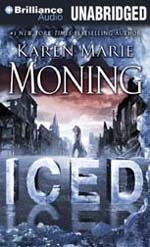
 The SFFaudio Podcast #589 – Jesse, Paul Weimer, Scott Danielson, Trish E. Matson, Evan Lampe, and Alec Nevala-Lee talk about WorldCon 2020.
The SFFaudio Podcast #589 – Jesse, Paul Weimer, Scott Danielson, Trish E. Matson, Evan Lampe, and Alec Nevala-Lee talk about WorldCon 2020.
Talked about on today’s show:
WorldCon had some panels, Hugo Awards 2020, George R.R. Martin, 3.5 hours long, we love the stories but maybe on a panel, Robert Silverberg, Jeannette Ng Astounding Award Speech that won a Hugo, Alec Nevala-Lee on John W. Campbell, bottle of scotch, Retro Hugos 1945, magazines in 1945, rules for Best Series Hugo, Arkham House, hero pulps, continue the Retro Hugos?, Leigh Brackett, Clifford Simak, C.L. Moore’s “No Woman Born”, New Zealand authors, Sir Julius Vogel Awards, Vogel Award voting packets, where was New Zealand in the award ceremony, WorldCon is a fan convention, WorldCon is a party put on by fans that we get to attend, gravitation field has shifted, mispronouncing names, award shows in general, Hugos are often tedious, fanzines have been buried – now they are all available, DIY History, University of Iowa, Leigh Brackett’s The Science Fiction Field, lists, Pellucidar better than Derleth’s contribution to Cthulhu Mythos, audience for younger writers, affording new books, R.F. Kuang, Poppy War, Lovecraft Country, The City and the City, libraries, a 35 cent book should today be $3.50, successful writers doing Patreons to help ends meet, Arkady Martine, A Memory Called Empire, local conventions, S.B. Divya, Becky Chambers, “Run-Time”, “To Be Taught, if Fortunate”, Wayfarers Trilogy, Suyi Davies Okungbowa, afrofuturism, Who Fears Death, Kirinyaga by Mike Resnick, Tade Thompson’s Rosewater, 2006 Worldcon, David Brin, “Killer B’s And A V”, Brin, Benford, Bear, Vinge, Karl Schroeder, get New Zealand another one, WorldCon bids, Chicago, Saudi Arabia, not feeling safe to go places, Dublin, should WorldCon have some kind of minimum standards of safety for attendees or trust voters to reject unsafe places, Memphis, Chengdu, China, travel to the United States, always expensive to go somewhere when you’re poor, kudos to CoNZealand volunteers, con panels are like podcasts every hour, Prisoners of Gravity, Fritz Leiber, Kim Stanley Robinson, doing research, lack of recordings of panels, loss of oral history of the genre, dealer’s room, do we have to have conventions?, environmental costs, Olympics ought to have one Olympic village at Athens and use it every 4 years, face to face has advantages, any future bids should include plans for a healthy and vigorous virtual component, Jesse likes podcasts better, comments better on Zoom than in person because no hijacking, Discord was used as if it were the hotel, breaking news: panels will be archived at Toronto’s Merrill Collection, CoNZealand Fringe panels, Gary K. Wolfe, near future SF, the Voluntary Human Extinction Movement, The Population Bomb, near future SF tends to be cautionary, writing more positive futures, Joe Haldeman, F&SF, Asimov’s, Analog, print!, the masquerade, Alec Nevala-Lee on feelings about award name change, a new Hugo category “Best Non-Fiction Work” where scholars can be recognized, what he is writing now, Buckminster Fuller, Syndromes short story collection, thanks to WorldCon volunteers.
Posted by Jesse Willis
Become a Patron!
 Reading, Short And Deep #231
Reading, Short And Deep #231
 Iced (A Dani O’Malley Novel)
Iced (A Dani O’Malley Novel)